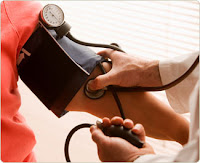 Flash, this just in: Only 10% of American adults have low heart disease risk. You heard right, nine out of every 10 people in the U.S. have at least one risk to their heart health; and the worst part is that these risks are all lifestyle dependent. Not good for a nation bent on pointing the finger at external causes for its poor health rankings.
Flash, this just in: Only 10% of American adults have low heart disease risk. You heard right, nine out of every 10 people in the U.S. have at least one risk to their heart health; and the worst part is that these risks are all lifestyle dependent. Not good for a nation bent on pointing the finger at external causes for its poor health rankings.
According to researchers from the Centers for Disease Control and Prevention (CDC) that looked at four national studies covering tens of thousands of Americans aged 25 to 74, only ten percent had low risk in the following categories:
- high blood pressure
- high cholesterol
- high blood sugar
- overweight
- smoking
- exercise too little
Each one of these categories is significantly impacted by lifestyle behaviors. High blood pressure, cholesterol and weight can all be controlled with regular and moderate exercise. Regular. Three times per week, minimum. Are you doing that?
 High blood sugar and weight is directly related to the amount and types of food we eat. The U.S. has a morbid addiction to sugar. I’m not talking just desserts here–oh, we’ve got that too, but what I’m talking about is sugary regular foods: cereals, canned foods, ketchup, BBQ sauce, French toast, scones and muffins for breakfast, and the worst of all–sodas! Hey I’m guilty too, because I have recommended sports replacement bars to my readers. No more! That stuff is sugary shit. I don’t eat them, and I’m not going to recommend them to anyone else, anymore. Pure crap.
High blood sugar and weight is directly related to the amount and types of food we eat. The U.S. has a morbid addiction to sugar. I’m not talking just desserts here–oh, we’ve got that too, but what I’m talking about is sugary regular foods: cereals, canned foods, ketchup, BBQ sauce, French toast, scones and muffins for breakfast, and the worst of all–sodas! Hey I’m guilty too, because I have recommended sports replacement bars to my readers. No more! That stuff is sugary shit. I don’t eat them, and I’m not going to recommend them to anyone else, anymore. Pure crap.
And the portions we eat are obscene. We all put away way too much every time we eat out. Sorry, but them’s the facts. Too much food.
And smoking? Like my good friend J.C. says, “Smoke ’em if you got ’em.” But just don’t point the finger at anyone but yourself when it’s time to pay the piper.
This is what really gets me irked about people: A full 90% of citizens are not doing all they can to care for their health, yet somehow it’s somebody else responsibility to take care of them if they fall ill. Sorry, but nobody can do your push-ups for you, no matter how much you demand it.

















